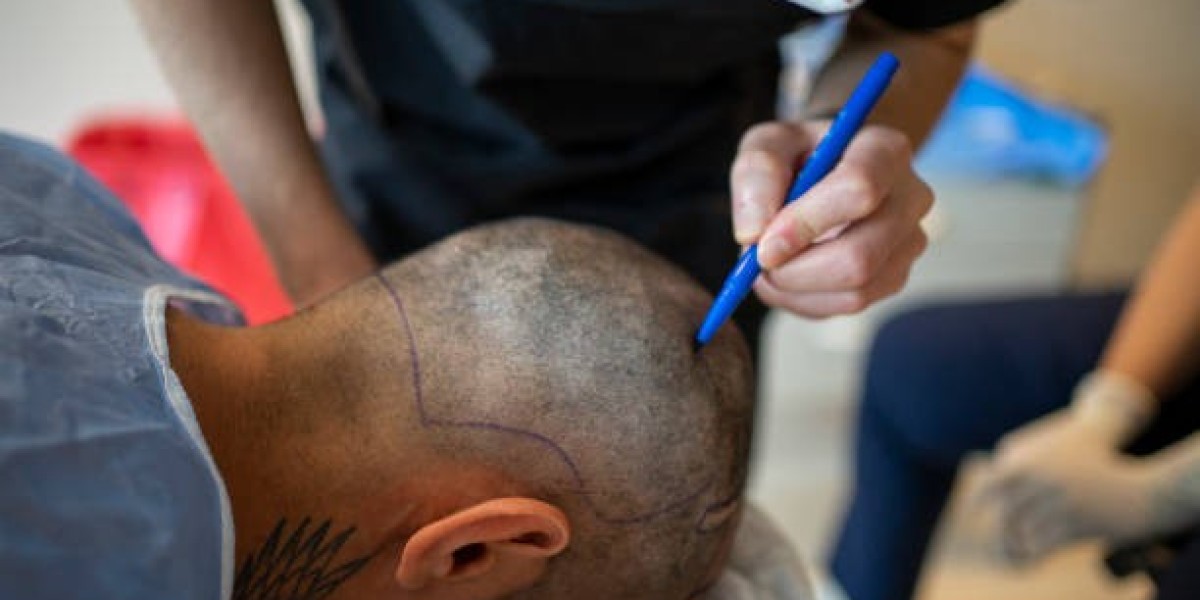Hair transplants have become one of the most popular solutions for hair loss worldwide, and Dubai stands out as a major destination for this procedure. However, many people considering a hair transplant in Dubai naturally wonder about the safety of the process. Is it safe? What risks are involved? And how can you ensure a secure, successful experience?
This article dives deep into the safety aspects of hair transplants in Dubai, covering everything from procedure standards to post-operative care. By the end, you’ll have a clear understanding of what to expect and how to choose a safe and trustworthy clinic.
What Makes Hair Transplants Generally Safe?
Hair transplants are considered a safe surgical procedure when performed by qualified and experienced professionals. The procedure involves:
Extracting healthy hair follicles from a donor site (usually the back or sides of the head)
Implanting those follicles into areas with thinning or no hair
Key reasons for safety include:
Use of local anesthesia to minimize pain and discomfort
Minimally invasive techniques like Follicular Unit Extraction (FUE), which reduces scarring
Strict sterilization and hygiene protocols in reputable clinics
Dubai’s leading clinics adhere to international medical standards, ensuring high levels of patient safety.
Common Hair Transplant Techniques Used in Dubai and Their Safety Profiles
Follicular Unit Extraction (FUE)
FUE is the most popular technique in Dubai due to its minimally invasive nature and quick recovery. It involves harvesting individual hair follicles with a tiny punch tool, leaving tiny dots that heal quickly. FUE is associated with:
Lower risk of infection
Minimal scarring
Faster healing time
Follicular Unit Transplantation (FUT)
FUT involves removing a strip of scalp from the donor area. This method leaves a linear scar and generally requires a longer recovery but is still safe when performed by experienced surgeons.
Both techniques are generally safe but require careful execution to avoid complications.
Potential Risks and Side Effects of Hair Transplants in Dubai
Though hair transplants are safe, like all surgeries, they carry some risks:
Infection: Rare in clean, well-managed clinics but possible if aftercare is neglected.
Bleeding: Minor bleeding is common but excessive bleeding can occur in some cases.
Swelling and Redness: Temporary and usually resolves within days.
Scarring: More common with FUT but minimized with skilled surgeons.
Shock Loss: Temporary shedding of native hair near the transplant site.
Unnatural Appearance: If done poorly, the hairline or density may look artificial.
Choosing an experienced surgeon reduces these risks significantly.
How to Ensure Your Hair Transplant in Dubai is Safe
1. Choose a Certified and Experienced Surgeon
Look for clinics where surgeons have proper medical certifications, specialized training in hair restoration, and years of hands-on experience.
2. Verify Clinic Hygiene and Accreditation
Ensure the clinic maintains strict sterilization protocols and holds recognized healthcare accreditations.
3. Attend a Thorough Consultation
A good clinic will conduct detailed medical history assessments and scalp examinations to determine suitability and plan the best approach.
4. Follow Pre- and Post-Operative Instructions Carefully
Proper preparation and diligent aftercare dramatically reduce risks like infection and improve overall outcomes.
What Safety Protocols Are Standard in Dubai Hair Transplant Clinics?
Use of disposable surgical tools or rigorous sterilization of reusable instruments
Monitoring of vital signs during the procedure
Local anesthesia administered by qualified professionals
Detailed aftercare guidelines covering wound care, medication, and lifestyle restrictions
Follow-up appointments to track healing and address any complications promptly
How Do Dubai Clinics Handle Complications?
Top clinics in Dubai have clear protocols to manage any complications quickly and effectively, including:
Prompt treatment of infections with antibiotics
Addressing excessive swelling or bleeding with medication and care
Providing corrective procedures or advice in rare cases of unsatisfactory results
The Role of Technology in Enhancing Hair Transplant Safety
Dubai clinics often invest in cutting-edge technology to improve safety and precision, including:
Automated FUE devices to reduce human error
High-resolution microscopes for graft preparation
3D imaging for personalized hairline design
Advanced anesthesia techniques to maximize comfort and safety
Patient Testimonials: Real Experiences of Hair Transplant Safety in Dubai
Many patients report smooth procedures and positive outcomes thanks to:
Professional, compassionate medical teams
Transparent communication about risks and expectations
Comprehensive support throughout the recovery process
How Safe Is the Recovery Process in Dubai?
The recovery phase is critical for overall success and safety:
Patients typically experience mild discomfort, swelling, and redness.
Avoiding strenuous activities, sun exposure, and touching the grafts is essential.
Following medication and hygiene instructions reduces infection risk.
Regular check-ups help ensure healing progresses without issues.
Is It Safe to Travel for a Hair Transplant in Dubai?
Dubai is a popular destination for medical tourism, including hair transplants. Traveling for your procedure is generally safe if:
You choose a reputable clinic with experience treating international patients.
You allow enough time post-procedure before flying to reduce complications.
You follow all aftercare instructions carefully while traveling.
Addressing Common Myths About Hair Transplant Safety in Dubai
Myth 1: Hair Transplants Are Painful and Risky
Fact: Procedures are done under local anesthesia and are minimally invasive, causing minimal pain and risk.
Myth 2: Scarring is Always Obvious
Fact: Techniques like FUE minimize visible scarring, often leaving almost no trace.
Myth 3: Hair Transplants Cause Permanent Damage
Fact: When done correctly, hair transplants improve hair density without harming existing follicles.
Conclusion: Hair Transplants in Dubai Are Safe When Done Right
Hair transplant procedures in Dubai are generally very safe due to the city’s high medical standards, skilled specialists, and advanced technologies. However, patient safety also depends on choosing the right clinic, following instructions, and having realistic expectations.
If you’re considering a hair transplant in Dubai, take the time to research thoroughly and consult qualified surgeons. With the right approach, you can enjoy a safe procedure and long-lasting, natural hair restoration.






